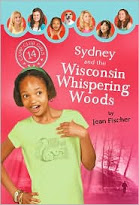
Norman Mailer eavesdropped on strangers’ conversations. So did J. D. Salinger. Tim Robbins does it, too. If you browse writing tips from great authors, you'll discover that many suggest eavesdropping as a legitimate writing tool.
This idea of listening to conversations may sound appalling, but the truth is that most writers can't help but eavesdrop. When they listen, they pick up not only unique snippets of dialog but also story ideas. Add people watching, and you'll find a surfeit of characters clamoring to find their ways into books and stories.
There are several good reasons why writers eavesdrop.
If working on a story outline, then go where your characters might go. Listen, watch, and take notes. This helps to develop characters' physical descriptions and personalities. It also provides clues about how characters interact within certain settings. When eavesdropping, pay attention to the flow of the voices, the pitch, volume and cadence. Take note of slang and regional dialect. If you hear a great line, jot it down word for word. You might want to use it someday.
Maybe you're in a full-blown writer’s block and need story ideas. One way to break loose is to spend a day or two eavesdropping and people watching. Restaurants and coffee shops are perfect for eavesdropping. So are waiting rooms, hotel lobbies, and public transportation. Kid-friendly venues, like playgrounds or public swimming pools, are venues for parent-child/child-child conversations and humorous anecdotes. Quiet places, like libraries and museums, work for scholarly and serious dialog. Experiment. Take yourself on eavesdropping adventures to places you otherwise might not go.
Thornton Wilder offered the best reason to eavesdrop. He said, “There's nothing like eavesdropping to show you that the world outside your head is different from the world inside your head.” Some of the best story ideas come from observing the everyday life of people around you. As the saying goes, Truth is stranger than fiction.
I admit that I’ve been eavesdropping for years. Here are a few humorous snippets from my files:
This idea of listening to conversations may sound appalling, but the truth is that most writers can't help but eavesdrop. When they listen, they pick up not only unique snippets of dialog but also story ideas. Add people watching, and you'll find a surfeit of characters clamoring to find their ways into books and stories.
There are several good reasons why writers eavesdrop.
If working on a story outline, then go where your characters might go. Listen, watch, and take notes. This helps to develop characters' physical descriptions and personalities. It also provides clues about how characters interact within certain settings. When eavesdropping, pay attention to the flow of the voices, the pitch, volume and cadence. Take note of slang and regional dialect. If you hear a great line, jot it down word for word. You might want to use it someday.
Maybe you're in a full-blown writer’s block and need story ideas. One way to break loose is to spend a day or two eavesdropping and people watching. Restaurants and coffee shops are perfect for eavesdropping. So are waiting rooms, hotel lobbies, and public transportation. Kid-friendly venues, like playgrounds or public swimming pools, are venues for parent-child/child-child conversations and humorous anecdotes. Quiet places, like libraries and museums, work for scholarly and serious dialog. Experiment. Take yourself on eavesdropping adventures to places you otherwise might not go.
Thornton Wilder offered the best reason to eavesdrop. He said, “There's nothing like eavesdropping to show you that the world outside your head is different from the world inside your head.” Some of the best story ideas come from observing the everyday life of people around you. As the saying goes, Truth is stranger than fiction.
I admit that I’ve been eavesdropping for years. Here are a few humorous snippets from my files:
Farmer in a rural cafe: "I nearly run over my wife in the cornfield this mornin'."
Waitress pouring coffee: “What the heck was Ruth doin’ in the cornfield?”
Farmer: “Said she was lookin’ for somethin’ that flew off the porch last night.”
Woman talking on her cell phone on the train:
"Before you fold the laundry tell Mark to take his underpants off the dog."
Doctor's waiting room:
Woman 1: "…then he went to Italy and saw the Parthenon."
Woman 2: "You mean the Coliseum."
Woman 1: “I thought he said the Parthenon."
Woman 2: "The Parthenon is in Greece. The Coliseum is in Italy. It’s where Daniel was in the lion's den."
And a few strange (but real) names I’ve gathered along the way:
Christina Pickles,
Ruby Knuckles,
Baldwin Bump, and
Pastor Peacock
So what are you waiting for? Get out there and eavesdrop!














